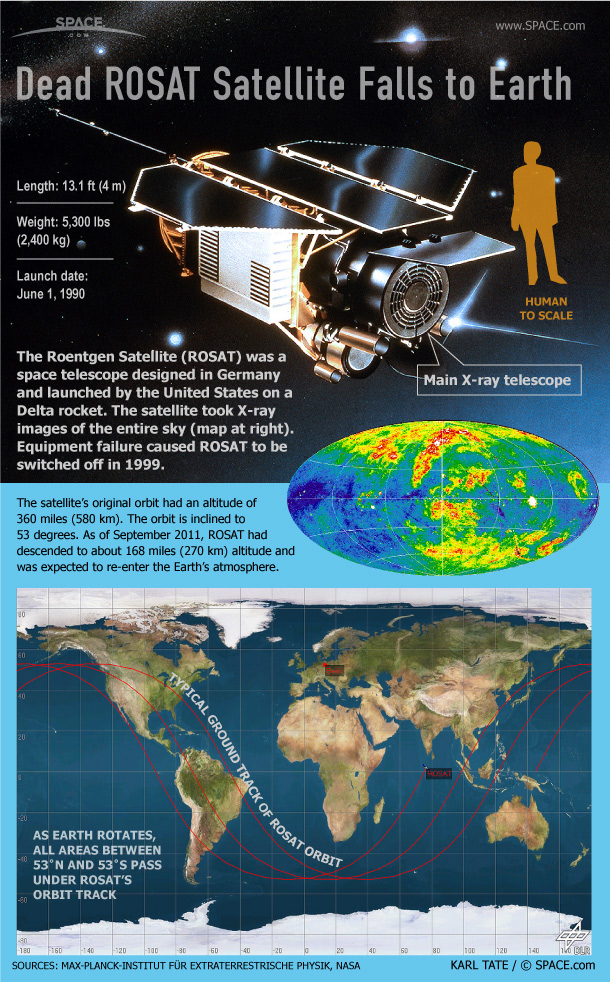The Facts About Germany's Falling Satellite ROSAT (Infographic)

The 2.4-ton X-ray space observatory ROSAT is expected to break up as it plunges through Earth's atmosphere in late October, but some large pieces will likely make it through the intense heat of re-entry. According to German aerospace officials, approximately 1.6 tons of satellite debris, consisting primarily of up to 30 large glass and ceramic fragments, could survive the journey through the atmosphere and reach the Earth's surface. The SPACE.com infographic above offers some key facts about the satellite's ultimate demise.
- Photos: Germany's ROSAT Satellite Falling to Earth
- 6 Biggest Uncontrolled Spacecraft Falls From Space
- Photos: Space Debris Images & Cleanup Concepts
- Worst Space Debris Events of All Time
- Latest News About Space Junk and Orbital Debris
Breaking space news, the latest updates on rocket launches, skywatching events and more!

Karl's association with Space.com goes back to 2000, when he was hired to produce interactive Flash graphics. From 2010 to 2016, Karl worked as an infographics specialist across all editorial properties of Purch (formerly known as TechMediaNetwork). Before joining Space.com, Karl spent 11 years at the New York headquarters of The Associated Press, creating news graphics for use around the world in newspapers and on the web. He has a degree in graphic design from Louisiana State University and now works as a freelance graphic designer in New York City.
